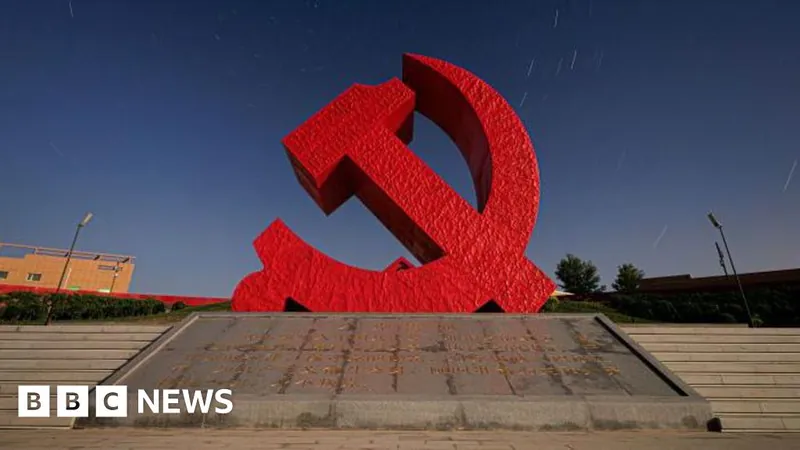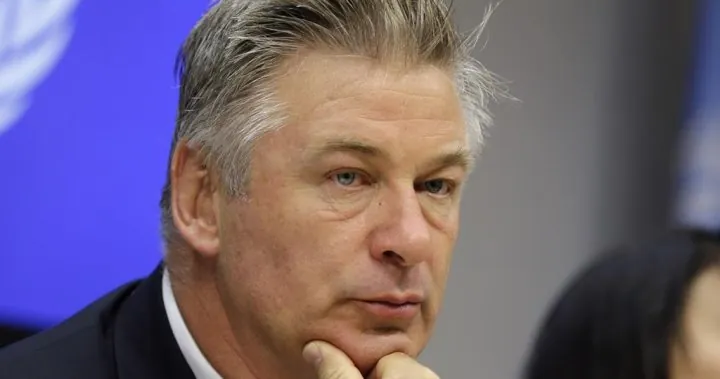
Unmasking China's 'United Front': The Controversial Influence Campaign in the West
2024-12-19
Author: Jacob
A Growing Concern
Recent cases such as that of Yang Tengbo, a businessman linked to Prince Andrew, highlight the complications surrounding UFWD associations. Yang was scrutinized and sanctioned for his alleged ties, reflecting the broader anxiety in Western nations over China's ambitious global outreach. Accusations of espionage have been levied against various individuals connected to the UFWD, indicating a landscape where the lines between influence and clandestine operations are increasingly blurred.
Understanding the United Front
The UFWD was initially designed to unify diverse social groups under the Communist Party's banner, a tactic that historically played a crucial role during China's civil strife. However, under President Xi Jinping, there has been a definitive shift back to leveraging the UFWD as a primary platform for shaping global perceptions of China. Observers note that the UFWD aims not only to manage narratives about sensitive issues like Taiwan and human rights in regions like Xinjiang but also to assert influence over Chinese expatriates living abroad.
Mareike Ohlberg of the German Marshall Fund describes the agency's mission as not merely reactive but actively proactive, utilizing various Chinese community organizations to amplify the Communist Party’s voice across the globe. This includes defending the party against criticism, managing dissent within overseas Chinese communities, and, in some instances, intimidating whistleblowers and critics.
Espionage Allegations and the Dilemma of Influence
While the UFWD's activities can include espionage, experts like Audrye Wong emphasize that its operations encompass much broader strategies aimed at mobilizing overseas Chinese populations. The stark reality is that many individuals and businesses face a difficult choice: they must navigate the treacherous waters of peddling influence without crossing into illegal territory. The notion of espionage was further complicated by China's 2017 law mandating cooperation from Chinese nationals with national intelligence agencies, essentially transforming citizens into potential informants.
The international community has been raising alarms about these dynamics. Countries like Australia and the United States have enacted stringent laws to combat foreign interference, leading to increased tensions between Beijing and Western governments. China has vehemently denied accusations of espionage, claiming that these allegations threaten diplomatic relations.
The Ethical Quagmire
As fears of China's influence grow, they often spill over into broader societal issues, fueling anti-Chinese sentiments. Individuals like Di Sanh Duong, an ethnic Chinese community leader in Australia convicted for attempted foreign interference, illustrate the chilling repercussions. His case raises critical questions about racial profiling and the potential misuse of anti-espionage laws against innocents or those merely sympathetic to China's global aspirations.
Experts urge governments to distinguish between legitimate national security concerns and unwarranted discrimination. Oversimplifying the dialogue surrounding diaspora communities can play directly into the hands of the Chinese government, providing it with propaganda ammunition that feeds on fears of the global Chinese community's loyalty.
Conclusion
The intricate web of the United Front Work has sparked competitive narratives about influence—why it is wielded, how it is perceived, and what it means for global politics. As China seeks to project power and narrative on the world stage, the challenge remains: how can Western nations engage constructively without compromising their national security or unwittingly fostering xenophobic attitudes? The road ahead is fraught with challenges, demanding both vigilance and a nuanced approach to understanding the complexities of China's global strategy.









 Brasil (PT)
Brasil (PT)
 Canada (EN)
Canada (EN)
 Chile (ES)
Chile (ES)
 España (ES)
España (ES)
 France (FR)
France (FR)
 Hong Kong (EN)
Hong Kong (EN)
 Italia (IT)
Italia (IT)
 日本 (JA)
日本 (JA)
 Magyarország (HU)
Magyarország (HU)
 Norge (NO)
Norge (NO)
 Polska (PL)
Polska (PL)
 Schweiz (DE)
Schweiz (DE)
 Singapore (EN)
Singapore (EN)
 Sverige (SV)
Sverige (SV)
 Suomi (FI)
Suomi (FI)
 Türkiye (TR)
Türkiye (TR)